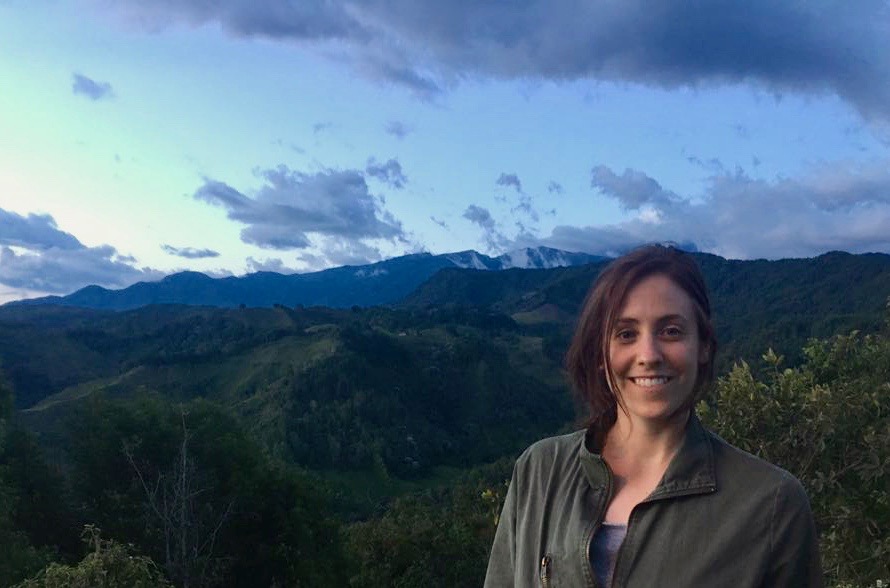Molly Green graduated with the MA in Women’s Studies in 2014. She is currently a doctoral candidate in the Department of Anthropology at UNC Chapel Hill. Her engaged research on climate change, agricultural technologies, and food sovereignty is informed by feminist and decolonizing theory
I first—reluctantly—began to claim the identity of feminist during my undergraduate years, but certainly did not identify strongly with this label or really immerse myself in feminist theory until I began the Women’s Studies MA program at UF in 2011. I somewhat fell into the program because it would afford me a funded opportunity to work with Dr. Florence Babb, who was an anthropologist and a faculty member in Women’s Studies at that time. While my parents and some old advisors were less than pleased at my pursuit of women’s studies, I feel fortunate that my path led me here because this program radically shifted my worldview, my career priorities, and the ways that I approach research, pedagogy, and relationships.
I recently finished 14 months of research in Colombia for my doctoral project on the ways that “climate smart” agricultural technologies are being leveraged by farmers in Cauca, Colombia in unexpected ways to create futures in which food sovereignty and dignity are centered and gender norms and roles are covertly challenged. Women in particular are the ones that are cleverly manipulating these technologies to achieve their visions for the future. My training at UF prepared me to track the often invisible ways that women enact agency and to begin looking toward collaborative and activist approaches to conducting research; these approaches were integral to the completion of my doctoral research.
In the classroom, my pedagogical practices are informed by my commitment to feminist theories and praxis that challenge “business-as-usual” approaches by addressing power inequalities and through a commitment to valuing diversity of experiences, perspectives, and social positionalities. I use various pedagogical strategies that encourage students to engage critically with course materials, to carry lessons learned in the classroom into their own lives, and to learn to listen, speak, and collaborate across differences. This approach is directly informed by my own experiences as a student at UF and the ways that different teachers and colleagues challenged me to examine my own positionalities and privilege and to question academia as a whole. My overall goals are to give students the tools to critically reflect on how power and oppression shape the world and their own lives and to work toward mutual understanding across differences.
Feminist theory and praxis have been important to both my personal and professional development and have shaped the commitments that are central to my research and teaching. My gender and women’s studies education in the Center was integral to shaping these commitments and I am grateful to my colleagues and professors at UF for the personal and professional growth that they nurtured while I was in Gainesville.
